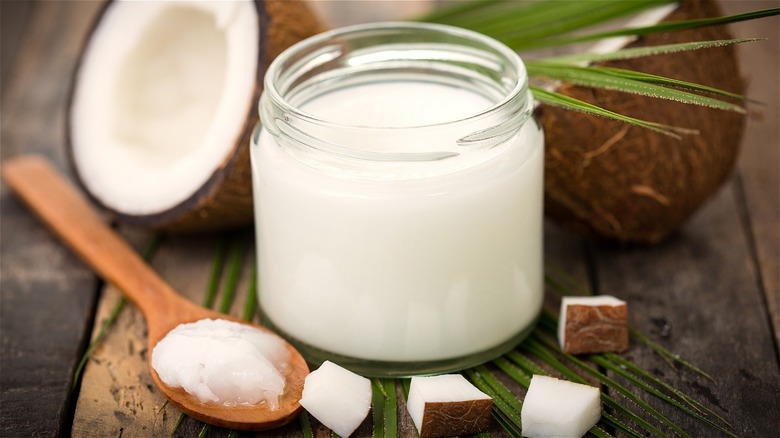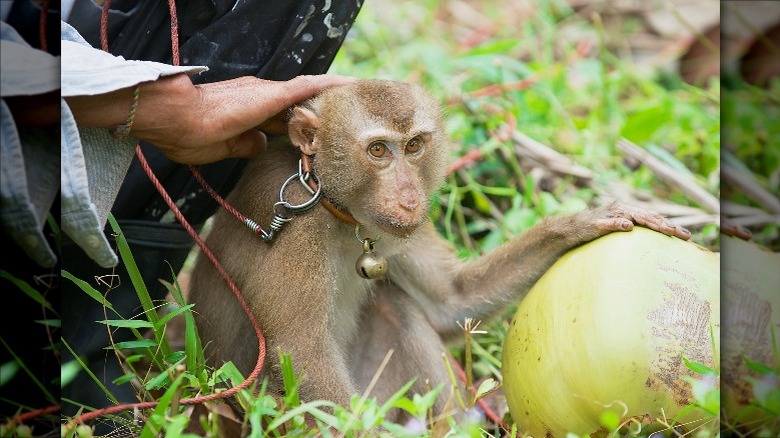The Real Reason Publix Cut Ties With A Coconut Milk Producer
We may receive a commission on purchases made from links.
Publix has announced that they will no longer sell Chaokoh, a coconut milk brand that has inspired controversy and a multi-year campaign conducted by the People for the Ethical Treatment of Animals (PETA). The cause of outcry was the use of monkey labor by the products manufacturer, Theppadungporn Coconut Co. Specifically, people reacted to how the monkeys that harvested coconuts worked in chains.
"A life as a chained-up coconut-picking machine is no life at all for a monkey, who needs to play, eat, and explore with family members," Tracy Reiman, the Executive Vice President of PETA, said in a celebratory press release. The press release also noted that PETA had put up billboards decrying Publix's choice to sell Chaokoh. Some protesters even dressed up as monkeys to dump coconuts outside of Publix's corporate office in Lakeland, Florida in December of 2020.
Publix did try to push back against the accusations by claiming the Thai ambassador had given written assurances that no monkey labor was exploited in the sourcing of coconut milk. However, PETA was not diverted and later said, "Chaokoh and the government are complicit in monkey labor continuing to be used in the production of coconut milk."
Despite their victory, PETA has not put down the sword. Instead, the organization has plans to campaign against Walmart.
Publix is only PETA's latest conquest
If Walmart really intends to continue to sell Chaokoh products, they had better ready themselves for the long haul. Before PETA began to campaign against Publix, they brought their complaint to Costco. Costco stopped stocking Chaokoh coconut milk in October 2020. Walgreens, Food Lion, and Stop & Shop had ceased stocking coconut milk earlier that year as well. And in June 2021, Kroger joined their number, which also included Target, Wegmans, and Giant Food.
While Costco's decision was in the news, Walmart contacted CNN with the statement: "We will continue to engage with this supplier regarding our expectations, the severity of these allegations and that the supplier will take corrective action if needed." Evidently, Chaokoh met Walmart's approval because the company still stocks their coconut products on their website.
However, considering the status of the stores with which PETA has had success, it does not seem likely that the organization will be put off by Walmart's assurances that their is no exploitation.

